Imagine being part of a vibrant street parade, surrounded by the rhythmic beats of traditional singing and dancing, and immersed in the spiritual fervor of Christian celebrations. This is what you can expect when attending one of the many festivals in Tonga, an island nation known for its rich culture and warm hospitality.
Tonga’s events are a testament to the island’s heritage, showcasing a unique blend of traditional practices and contemporary celebrations. By participating in these festivals, you’ll not only be entertained but also gain a deeper understanding of Tongan values and community spirit.
From the colorful parades to the soulful singing competitions, Tonga’s festivals offer a unique opportunity to connect with the local culture and people. Whether you’re looking to immerse yourself in the island’s heritage or simply enjoy the vibrant atmosphere, Tonga’s events are an experience you won’t want to miss.
The Cultural Significance of Festivals in Tonga
The cultural significance of festivals in Tonga cannot be overstated, as they embody the nation’s history and values. Festivals in Tonga are vibrant expressions of the nation’s cultural heritage, reflecting its rich history, art, and communal values.
These celebrations are not merely events but are deeply intertwined with Tongan identity, providing opportunities for cultural expression, social bonding, and the transmission of traditions across generations. By participating in these festivals, you’ll gain insight into how they are vital expressions of cultural identity and heritage preserved for generations.
Tongan festivals serve as living museums, preserving traditional practices, music, dance, and craftsmanship that might otherwise be lost to modernization. They strengthen social bonds within the community, bringing together people of all ages and backgrounds.
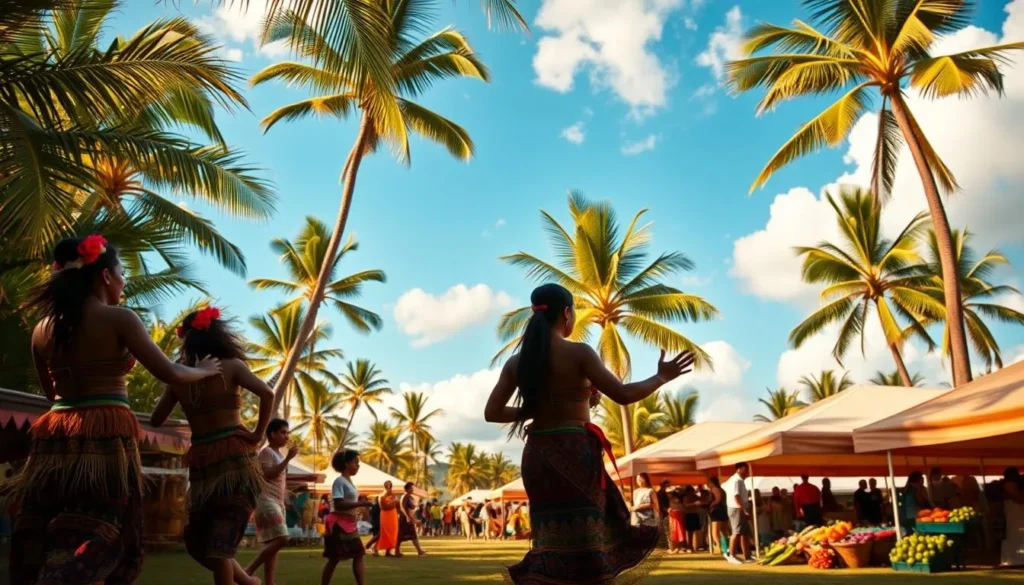
These cultural celebrations help transmit knowledge and values from elders to younger generations, ensuring cultural continuity. They reflect Tonga’s unique position as one of the few Pacific nations that was never fully colonized, allowing for more authentic preservation of pre-European cultural elements.
By reinforcing Tongan values of respect, community responsibility, and family connections, these festivals foster a sense of pride and belonging among Tongans, particularly in an era of globalization.
Understanding Tongan Festival Calendar
Understanding the Tongan festival calendar is key to planning your visit during the best time to experience Tongan celebrations. Tonga’s cultural festivals and events are an integral part of the island nation’s identity and are celebrated throughout the year.
The Tongan festival calendar is influenced by both seasonal patterns and significant historical and religious dates. This blend of traditional Polynesian culture and Christian influences shapes the contemporary celebrations you will experience during your visit.
| Month | Festivals and Events |
|---|---|
| January | New Year’s Day celebrations |
| April | Easter celebrations, including Good Friday and Easter Monday |
| May | Heilala Festival, a premier cultural celebration |
| December | Christmas and Boxing Day celebrations |
Some festivals are fixed to specific dates, while others follow lunar or seasonal calendars, creating a dynamic festival landscape. Different islands within the Tongan archipelago may celebrate at different times, offering you multiple opportunities to experience similar festivals.
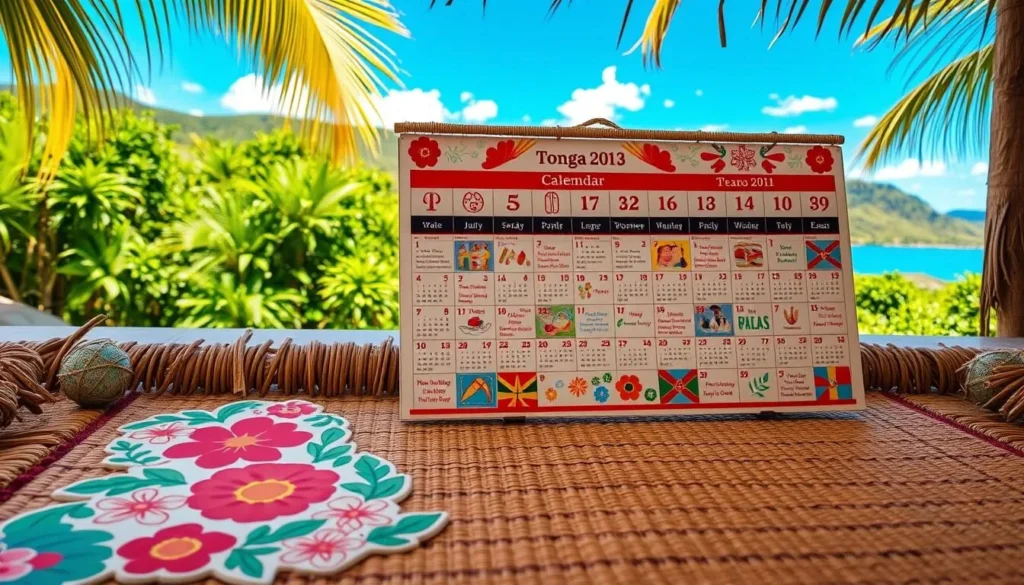
The best time to experience Tongan celebrations is often during the dry season, when some of the most vibrant festivals take place. As you plan your visit, you’ll find that the Tongan festival calendar reflects the nation’s rich cultural heritage and its evolution over time.
Heilala Festival: Tonga’s Premier Cultural Celebration
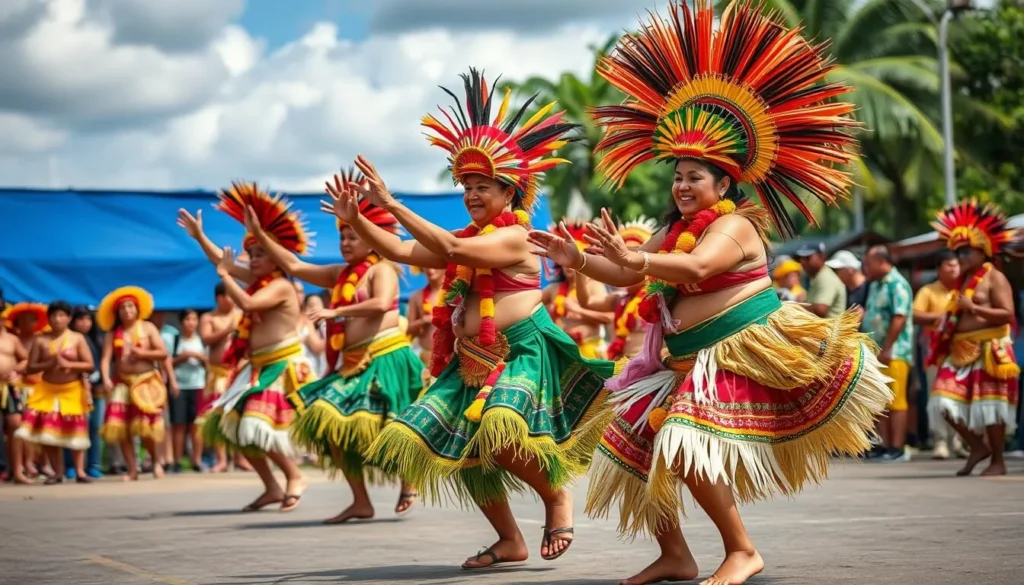
The Heilala Festival, named after Tonga’s national flower, is a celebration of the country’s history, culture, and beauty. This significant event takes place around the beginning of July and lasts for one to three weeks, coinciding with the King’s birthday celebrations.
During the festival, you’ll experience a rich variety of events, including traditional dance competitions, sporting events, craft exhibitions, food festivals, and musical performances. The festival culminates in the “Miss Heilala Beauty Pageant”, a highlight of the event that showcases not only physical beauty but also cultural knowledge, traditional skills, and community service.
Miss Heilala Beauty Pageant
The Miss Heilala Beauty Pageant is a centerpiece of the Heilala Festival, differing significantly from Western beauty pageants. Contestants represent different regions and communities across Tonga, making it a nationwide celebration that brings people together. The pageant emphasizes cultural knowledge, traditional skills, and community service alongside physical beauty, providing a unique insight into Tongan culture and heritage.
By participating in or attending the Heilala Festival, you’ll gain a deeper understanding of Tongan cultural heritage and witness the country’s vibrant traditions and contemporary talent. The festival has evolved over the years while maintaining its core purpose of celebrating and preserving Tongan cultural identity.
Island-Specific Cultural Festivals
As you explore Tonga, you’ll discover that each island group has its own distinct cultural festivals that reflect the local way of life. These festivals are an integral part of Tongan culture, showcasing the unique traditions, crafts, and performing arts specific to each island.
Ha’apai Tourism Festival
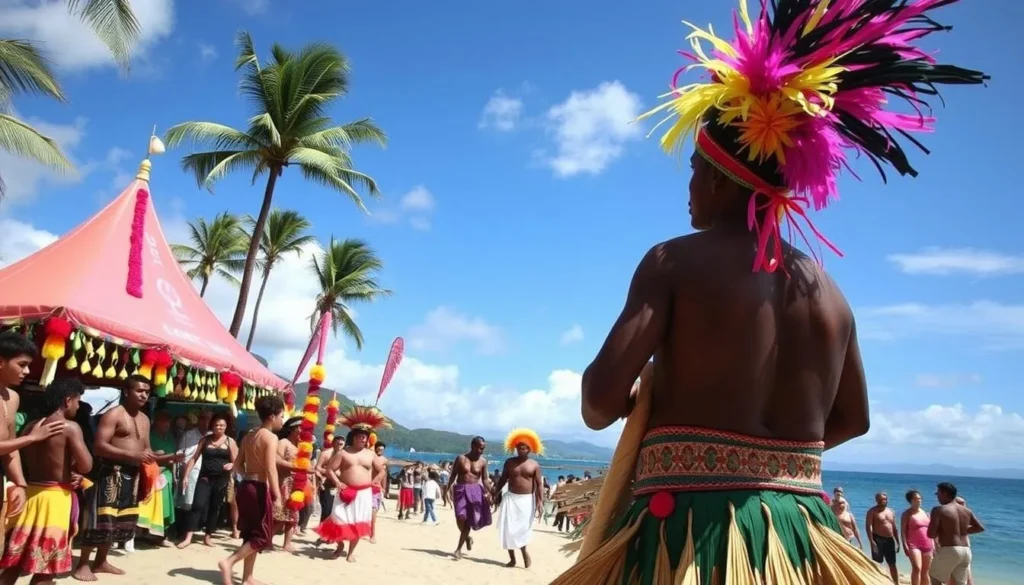
The Ha’apai Tourism Festival takes place during the second week of June every year, showcasing the distinctive cultural elements and natural beauty of the Ha’apai island group. This celebration is a great opportunity to experience the local traditions and hospitality of the Ha’apai community.
‘Eua Tourism Festival
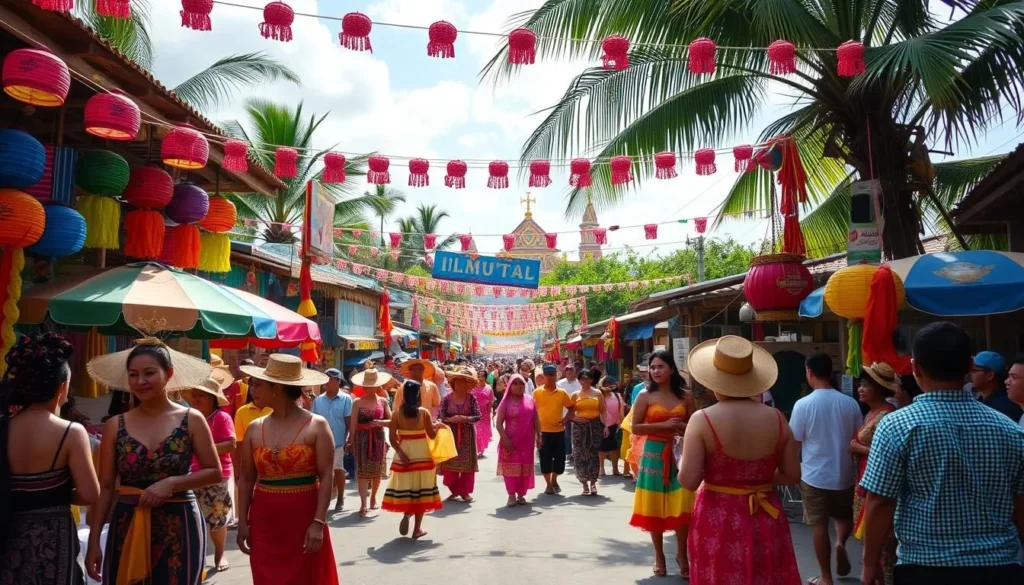
Typically occurring during the second week of May, the ‘Eua Tourism Festival is one of the first festivals in the annual events calendar. The festival celebrates traditional Tongan culture on the island of ‘Eua, highlighting its unique ecological and cultural heritage.
Vava’u Festival
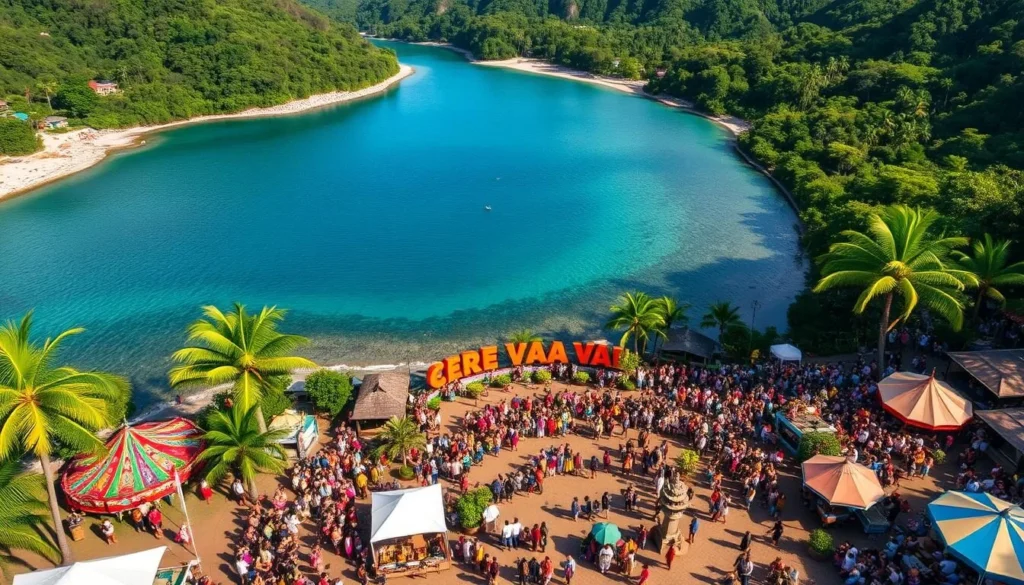
The Vava’u Blue Water Festival is the largest event on Tonga’s cruising calendar, incorporating maritime traditions and sailing competitions alongside cultural performances. This festival reflects the island group’s strong connection to the sea and showcases the local way of life.
These island-specific festivals serve both to preserve local cultural variations and to promote tourism to the outer islands beyond the main island of Tongatapu. By attending these festivals, you’ll gain a deeper understanding of the diversity within Tongan culture across different islands.
Religious Celebrations in Tonga
Religious celebrations play a vital role in Tongan society, reflecting the country’s strong Christian heritage. You can experience the depth of Tongan culture by participating in these significant events.
Easter Celebrations
Easter is a significant event in Tonga, with the Holy Week being observed through special church services and community gatherings. You can witness the blend of Christian practices with local traditions during this period.
White Sunday
White Sunday, or Lotu Tamaiti, is a special day for children in Tonga, celebrated in October. You can see children dressed in white, participating in church services, and enjoying a family feast where they are served first.
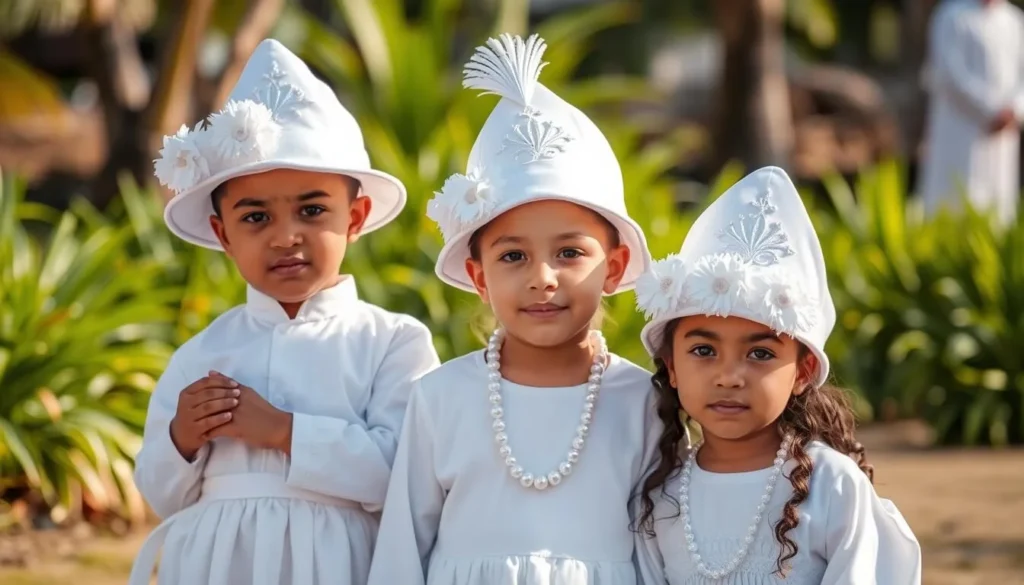
Christmas and New Year Festivities
Christmas and New Year are celebrated with great enthusiasm in Tonga. You can experience extended family gatherings, community feasts, and church services, showcasing the unique Tongan traditions during this festive season.
These religious celebrations not only strengthen community bonds but also reinforce Tongan values of family, respect, and service to others. By participating in these events, you can gain a deeper understanding of Tongan culture and its Christian heritage.
Tonga: Top Festivals to Check Out When Visiting Based on Season
Throughout the year, Tonga hosts a variety of festivals that offer a glimpse into the country’s traditions and customs. The timing of these events is often influenced by the weather, agricultural cycles, and historical traditions.
Summer Festivals (December-February)
Summer in Tonga coincides with the wet season, but it’s still a great time to experience important celebrations like Christmas and New Year. Despite the humid weather, various community events take place during this period.
Autumn Festivals (March-May)
As the weather transitions to drier conditions, autumn marks the beginning of the main festival season. The ‘Eua Tourism Festival is one of the notable events that kick off during this time, making it more favorable for outdoor celebrations.
Winter Festivals (June-August)
Winter is the dry season in Tonga and hosts the most vibrant and numerous festivals, including the Heilala Festival and Ha’apai Tourism Festival. This period also coincides with the popular whale watching season, making it the best time to visit for those interested in both culture and nature.
Spring Festivals (September-November)
During spring, Tonga continues to host significant events like the Vava’u Festival and religious celebrations such as White Sunday. This season precedes the return of the wet season, offering a comfortable climate for outdoor festivities.
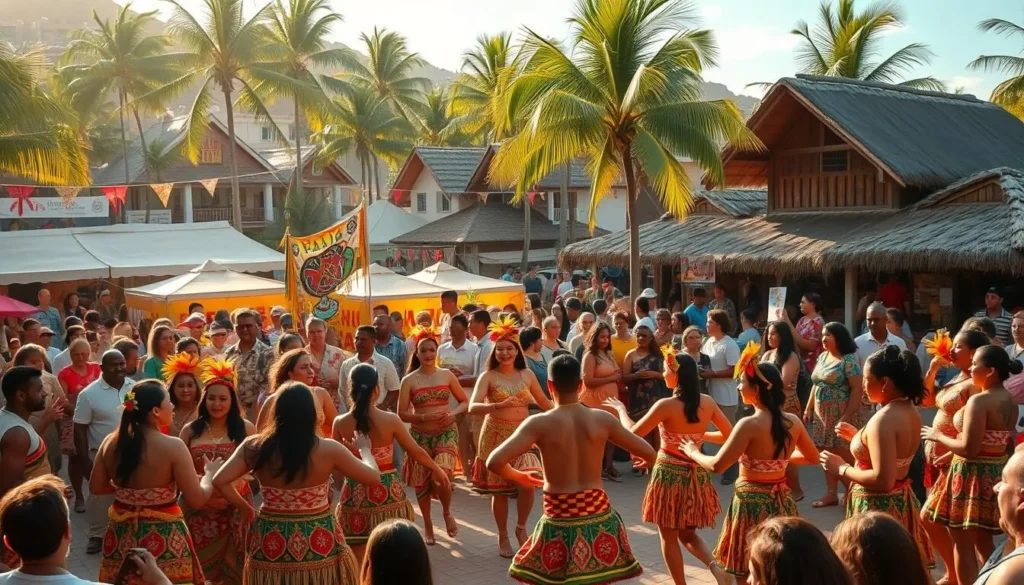
By understanding Tonga’s festival calendar, you can plan your visit to coincide with the best time to experience Tongan culture based on your interests and preferred weather conditions.
Traditional Music and Dance at Tongan Festivals
The heartbeat of Tongan festivals is found in their rich traditional music and dance heritage. At the core of Tongan cultural expression, these art forms serve as powerful mediums for storytelling and preserving cultural knowledge.
Tongan traditional music features unique instruments such as the hukulele, a small ukulele-like instrument, the pate, a type of slit drum, and ngatu, tapa cloth. These instruments create the rhythmic foundation for festival performances.
- You’ll encounter distinctive Tongan dance forms like the tau’olunga, a graceful women’s solo dance, the ma’ulu’ulu, a sitting dance, and the lakalaka, a standing dance.
- Dance performances often tell stories about Tongan history, mythology, and daily life, with movements carrying specific cultural meanings.
- Traditional music and dance involve participants of all ages, reflecting Tongan social structures and community coordination.
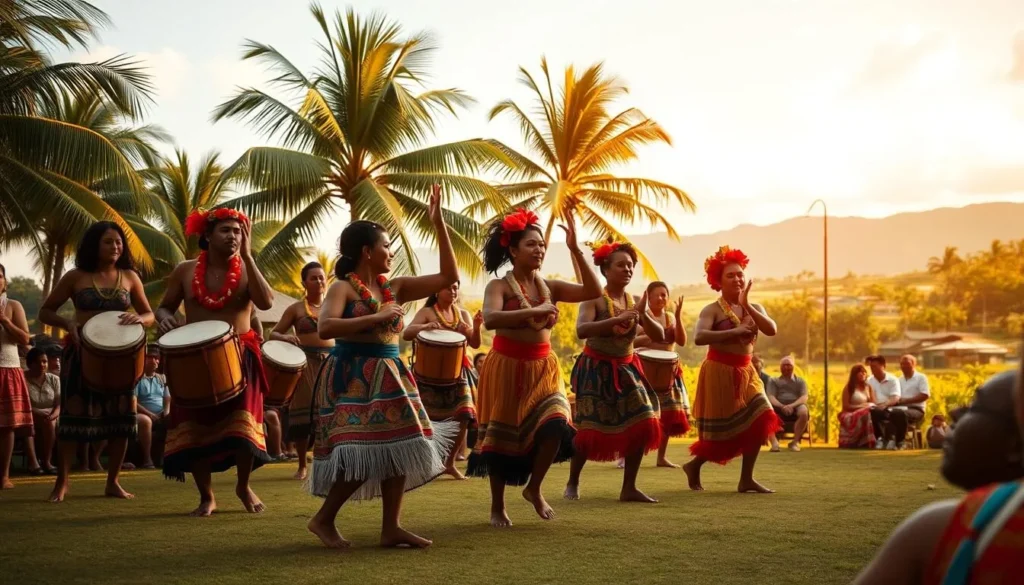
These performances combine vocal harmonies, rhythmic precision, and synchronized movements, demonstrating both individual skill and community effort. As Tongan culture evolves, traditional music and dance continue to play a vital role in festivals, sometimes incorporating contemporary elements while maintaining their cultural significance.
Culinary Experiences at Tongan Festivals
Tongan festivals are renowned for their delectable feasts, showcasing the island’s rich culinary heritage. The Tongan cuisine is a unique fusion of flavors, influenced by the island’s natural resources and cultural practices.
At Tongan festivals, you’ll discover how food plays a central role, with elaborate feasts known as ‘umu prepared in traditional earth ovens. These feasts showcase the islands’ abundant seafood, root crops, and tropical fruits.
- Signature Tongan festival dishes include lu (meat wrapped in taro leaves with coconut cream), ‘ota ika (marinated raw fish), and roasted suckling pig.
- The communal nature of food preparation at festivals demonstrates Tongan values of cooperation and generosity.
- Special ceremonial foods are prepared for specific festivals, following traditional protocols that reflect Tongan social hierarchies and respect.
Participating in a Tongan festival feast offers an authentic way to experience Tongan culture. You’ll understand how modern influences have been incorporated into traditional festival cuisine while maintaining core culinary traditions.
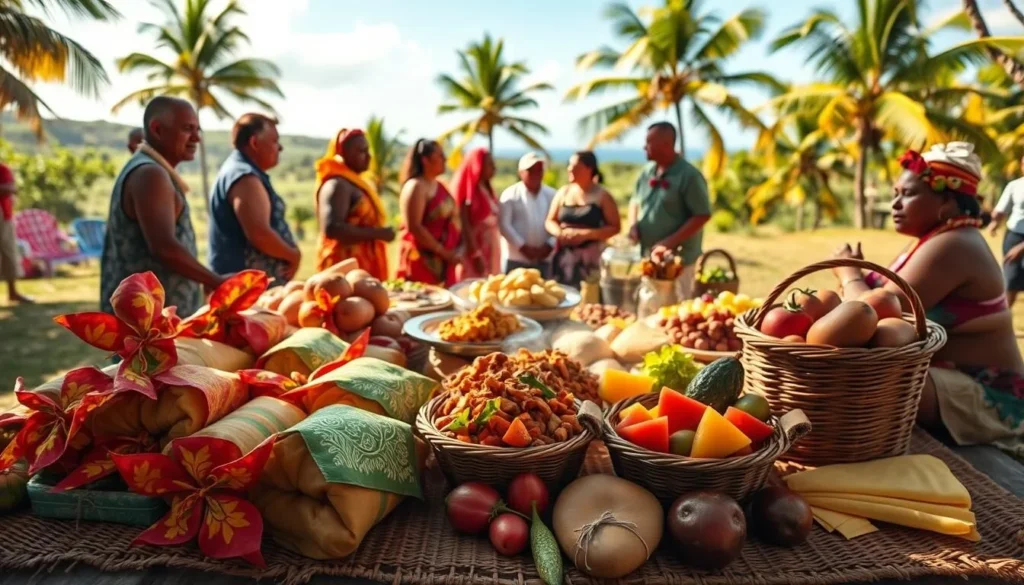
Public Holidays and National Celebrations
As you explore Tonga, you’ll discover that public holidays are a significant aspect of the nation’s cultural fabric. Tonga enjoys a series of public holidays each year, which means many businesses are closed during these days.
The public holidays in Tonga include New Year’s Day on January 1, Good Friday and Easter Monday (dates vary between March 22 and April 25), ANZAC Day on April 25, Emancipation Day on the Monday following June 4, King Tupou VI’s Birthday on July 4 (or the following Monday if it falls on a Sunday), Birthday of Crown Prince on September 17, Tonga Day on the Monday following November 4, King Tupou I Day on the Monday following December 4, Christmas Day on December 25, and Boxing Day on December 26.
| Date | Public Holiday |
|---|---|
| January 1 | New Year’s Day |
| March/April (Variable) | Good Friday & Easter Monday |
| April 25 | ANZAC Day |
| Monday after June 4 | Emancipation Day |
| July 4 (or following Monday) | King Tupou VI’s Birthday |
These public holidays often feature unique celebration traditions that blend ceremonial protocols with festive activities accessible to both locals and visitors. You’ll gain a comprehensive understanding of Tonga’s public holidays and how they relate to important historical events, royal commemorations, and religious observances.
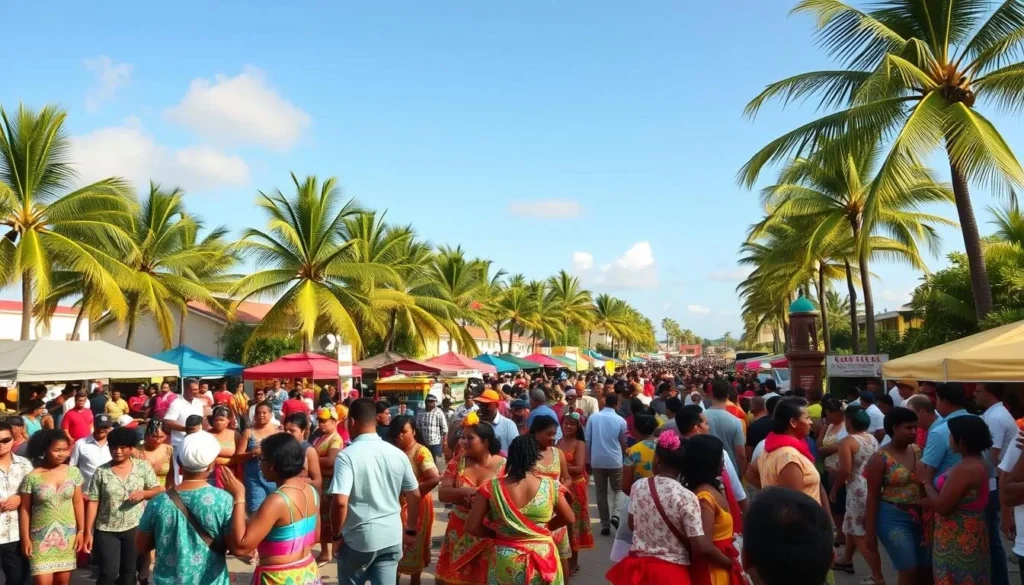
Understanding these national celebrations will help you appreciate Tonga’s unique status as the only remaining Polynesian monarchy and how royal traditions influence public events.
Tips for Experiencing Tongan Festivals
As you prepare to attend a Tongan festival, here are some tips to enhance your experiences. To make the most of your time, understand that Tongan events often run on “island time” rather than strict schedules.Plan to arrive earlyto secure a good vantage point for performances.
When attending a Tongan festival, it’s essential to dress modestly, covering your shoulders and knees as a sign of respect. You’ll also want to be mindful of cultural protocols, especially during ceremonial or religious components. For instance, permission should be requested before taking photos during these events.
Tongan festivals offer a unique opportunity to engage with the local community. Learning basic Tongan greetings and expressions of appreciation can go a long way in enhancing your interactions. You can also participate in workshops where you can learn traditional crafts, music, or dance.
| Festival Activity | Description | Tips for Participation |
|---|---|---|
| Traditional Dance Performances | Watch ‘lakalaka’ and other traditional dances | Be respectful and ask permission before taking photos |
| Singing Competitions | Enjoy local choirs competing in traditional songs | Join in by clapping along to the rhythm |
| Colourful Parades | Marvel at vibrant costumes and marching brass bands | Take photos from a distance to avoid obstructing the procession |
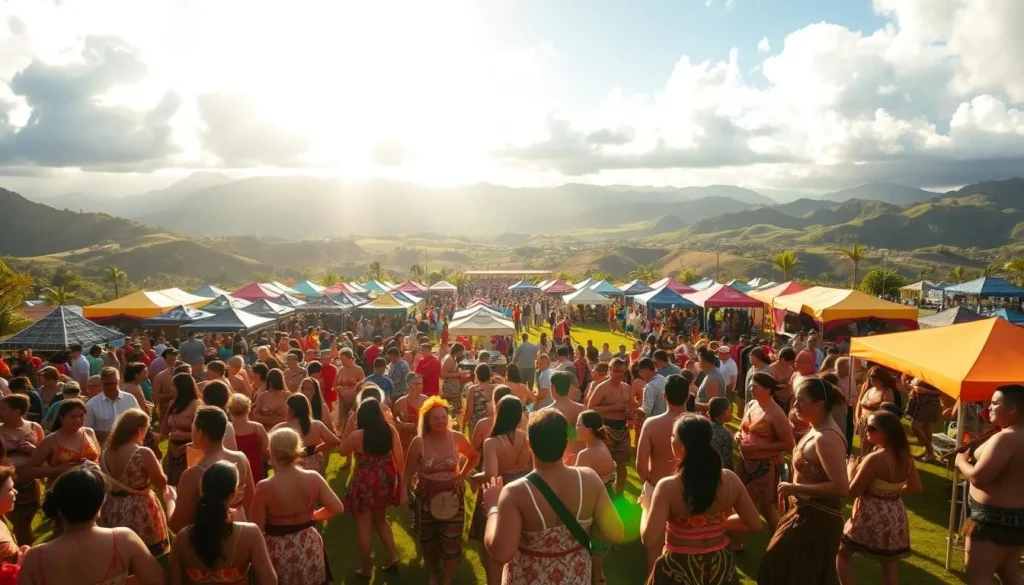
By following these tips, you can have a more meaningful and enjoyable experience at Tongan festivals, immersing yourself in the local culture and community.
Conclusion
Experiencing Tonga’s festivals is like stepping into a living, breathing embodiment of the island’s history and communal spirit. The cultural events in Tonga offer more than just entertainment; they provide a glimpse into a living culture that has maintained its authenticity despite centuries of outside influence.
As you participate in these vibrant cultural festivals, you’ll create meaningful connections with the local people, forging memories that last far beyond typical tourist experiences. By supporting these celebrations, you’re helping preserve traditional practices and contributing to the economic well-being of local communities who work tirelessly to maintain their heritage.
Tonga’s warmth and hospitality, exemplified in its festivals, is a testament to why it’s known as the “Friendly Islands.” We encourage you to plan your visit around at least one major event to experience the true heart and soul of Tongan culture and heritage. In doing so, you’ll witness firsthand Tonga’s remarkable balance of tradition with modernity, creating a dynamic cultural landscape that remains relevant today.
The above is subject to change.
Check back often to TRAVEL.COM for the latest travel tips and deals.
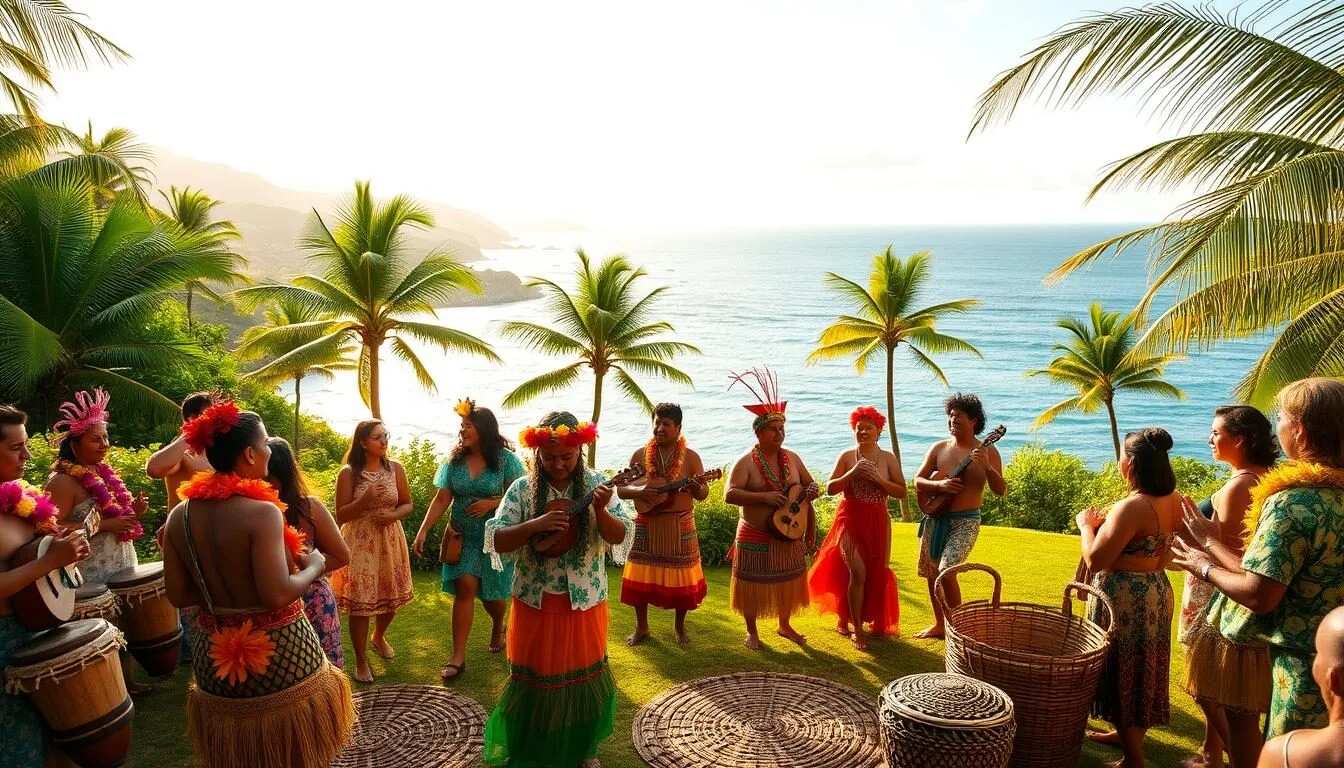
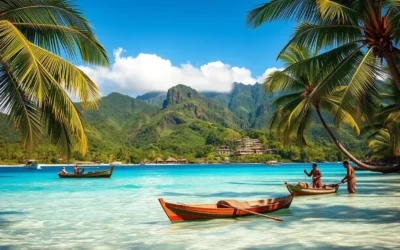
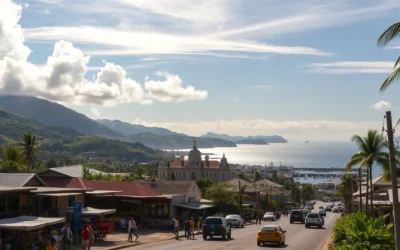
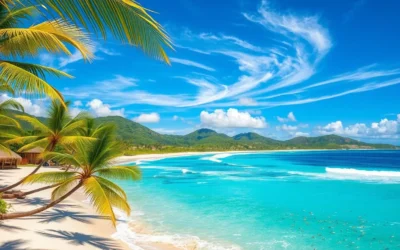
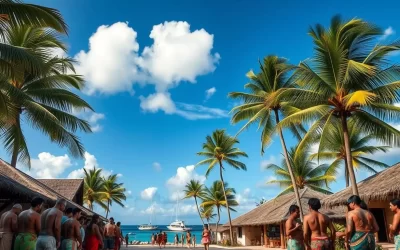
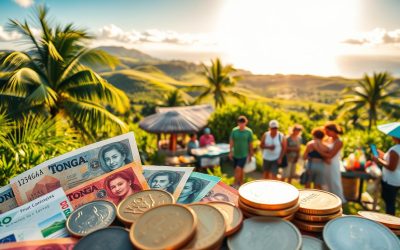
0 Comments